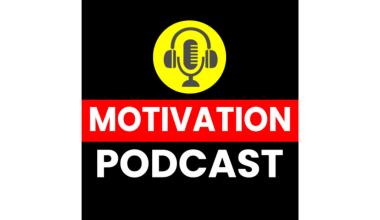What Does a Music Publisher Mean?
If you’ve ever wondered what a music publisher does, you’re not alone! Many musicians and songwriters get confused by the term. A music publisher is like your music business partner. They help you protect your songs, get paid when your music is used, and connect you with opportunities like films or advertisements.
Imagine writing a beautiful song. Wouldn’t you want to make sure no one uses it without your permission? Or better yet, wouldn’t you want to earn money every time it’s played on the radio, streamed online, or used in a movie? That’s where a music publisher steps in.
In this blog, we will explain everything about music publishers in simple, easy-to-understand language. By the end, you’ll know exactly why they are so important for every musician.
What is a Music Publisher?
A music publisher is a person or company that works with songwriters and composers. Their job is to take care of your music’s business side while you focus on creating great songs. Here’s what they do:
- Protect your music with copyright.
- Make sure you get paid when someone uses your song.
- Find ways to make more money from your music, like putting it in movies, ads, or TV shows.
- Handle all the paperwork so you don’t have to worry about it.
Think of them as a bridge between your creativity and the business world. They make sure your music reaches more people and that you get paid fairly for your hard work.
Why is a Music Publisher Important?
Let’s face it—writing music is hard enough. Do you also want to handle legal stuff, track royalties, and chase people who owe you money? That’s why having a music publisher is important. Here are some key reasons:
- They Save You Time: Publishers handle all the complicated business tasks, so you can focus on making music.
- They Protect Your Rights: If someone tries to steal your music or use it without permission, your publisher will step in.
- They Increase Your Earnings: Publishers know how to license your music for TV, movies, and commercials, bringing you more income.
- They Open Doors: With their industry connections, publishers can help you land big opportunities.
What Does a Music Publisher Do?
A music publisher wears many hats. Their responsibilities can be broken into three main categories:
1. Copyright Protection
Copyright is like a shield that protects your music from being copied or stolen. A music publisher ensures your music is legally registered. This means no one can use it without your permission.
2. Royalty Collection
Every time your music is played—on the radio, on Spotify, or in a café—you earn money called royalties. However, tracking all those payments is complicated. A publisher collects these royalties for you, so you don’t lose out.
3. Licensing
Imagine your song being featured in a blockbuster movie or a popular ad. A music publisher handles these licensing deals, making sure you get paid fairly and your song is used properly.
How Do Music Publishers Make Money?
Publishers don’t work for free, of course. They earn a share of the money your music makes. Here’s how they earn:
- Performance Royalties: Money earned when your song is played live, on the radio, or streamed online.
- Mechanical Royalties: Money from selling physical or digital copies of your music (like CDs or downloads).
- Sync Fees: Payment for licensing your song to movies, TV shows, or ads.
For example, if your song is featured in an ad, the company pays a fee to use it. Your publisher takes a percentage of that fee—usually between 15% and 30%.
Do You Need a Music Publisher?
Not every musician needs a music publisher right away. However, if you want your music to reach a wider audience and earn from different platforms, having a publisher is a big help. Here are some signs you might need one:
- You have written multiple songs and want to protect them.
- Your music is gaining attention, and you need help managing it.
- You want to license your songs for films, TV shows, or ads.
Types of Music Publishers
There are different kinds of music publishers to suit the needs of different artists. Let’s look at the three main types:
1. Major Publishers
Big companies like Sony Music Publishing or Universal Music Publishing. They work with famous artists and manage a large catalog of songs.
2. Independent Publishers
Smaller companies that focus on new or niche artists. They offer more personalized services and can help upcoming musicians.
3. Self-Publishing
Some artists choose to handle publishing themselves. This gives them full control but requires a lot of work and knowledge about copyrights and royalties.
How to Find a Good Music Publisher
Choosing the right music publisher is a big decision. Here’s how you can find one that fits your needs:
- Do Your Research: Look for publishers with a good reputation and experience in your music genre.
- Ask for Recommendations: Other musicians in your network can share their experiences.
- Read the Contract: Understand how much control and income you’ll give to the publisher.
The Relationship Between Music Publishers and Songwriters
The relationship between a songwriter and a music publisher is like a partnership. While you focus on making music, the publisher focuses on monetizing it. This partnership is usually outlined in a contract, where things like revenue splits and responsibilities are clearly mentioned.
How Technology is Changing Music Publishing
The rise of streaming platforms and digital tools has transformed the music publishing industry. Publishers now use data analytics and AI to find new opportunities for artists. For example, they can track which countries are streaming your songs the most and target licensing deals in those regions.
Benefits of Working with a Music Publisher
Here’s a quick summary of why working with a music publisher is beneficial:
- Earn More Money: From streaming, radio, and licensing.
- Reach a Wider Audience: Publishers can pitch your songs to media and brands.
- Focus on Creativity: Let them handle the business while you make music.
Common Questions About Music Publishers
1. Do Publishers Own My Music?
No, unless you agree to give them ownership in your contract. Most publishers only manage your music, not own it.
2. How Much Do Publishers Charge?
Publishers typically take 15% to 30% of your earnings, depending on the deal.
3. Can I Work Without a Publisher?
Yes, but it’s harder to manage everything alone, especially as your career grows.
Conclusion: Is a Music Publisher Right for You?
A music publisher is like a business partner for your music. They help you earn money, protect your rights, and grow your career. While not every artist needs one, having a publisher can unlock big opportunities.
If you’re serious about your music career, it’s worth considering a partnership with a music publisher. Just make sure to choose the right one and understand the terms of your agreement.
Related Articles:
For further reading, explore these related articles:
- What is a music publisher definition? Easy Guide for Beginners
- How to Create Music Distribution for Independent Artists: A Step-by-Step Guide
- Best Music Video Distribution – A Comprehensive Guide to Boosting Your Reach
For additional resources on music marketing and distribution, visit Deliver My Tune.




